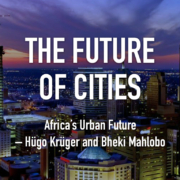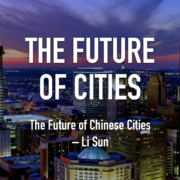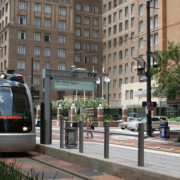Will Texas Get a 5th Large Metro?
I’m back from a short trip that caused me to miss last week’s post and ready to catch up on some smaller items:
“A new study from the fDi Intelligence division of the Financial Times places Houston at No. 7 among the top major cities of the future for 2021-22 across North, South, and Central America. Among major cities in the Americas, Houston appears at No. 3 for business friendliness and No. 4 for connectivity.”
- Market Urbanist Scott Beyer at Catalyst: Is Texas the U.S. Capital of Logistics? Free trade, a business-friendly climate, and urban agglomeration allows freight to thrive in Texas.
“America’s political class seems to believe that, due to automation, we will enter an era of secular stagnation and need welfare schemes like UBI to support people.
Texas, as the U.S. leader in trade & logistics, is a giant rebuttal to that.
Texas shows how through low taxes, loose land/housing regs, natural resource extraction, and open trade, a state can foster blue-collar jobs and upward mobility.”
- More from Scott Beyer: Will Texas Get a Fifth Large Metro? Texas’ “Big 4” metro areas—Dallas, Houston, Austin and San Antonio—have all exploded with growth. Will a 5th sleeper one emerge? His conclusion? If it will be anywhere, it will be in the I-35 corridor between Austin and San Antonio at the edge of the Hill Country. Not so much a fifth metro as the gradual merger of two of them. Eventually Austin-San Antonio may be right up there with Dallas-Ft. Worth and Houston in size. I agree with his assessment. The most compelling value proposition for most people moving to Texas is the suburb of an existing Triangle metro, where they’ll have access to all that metro’s jobs and amenities (including a major airport). Check out the cool maps he has of the largest Texas metros and their relative growth rates.
- Joel Kotkin: The Next Entrepreneurial Revolution – The pandemic’s economic destruction has also created new winners. One of his profiles is based in Houston:
“Out of the wreckage, some restaurant entrepreneurs are finding new ways to survive—and even thrive—by using the kinds of technology Jaffe sells. But what’s mattered most, suggested Chris Williams, owner of Houston’s famed Lucille’s soul food house, has been finding ways to stay in touch with customers through the pandemic. Faced with closures, Williams, unlike many of his counterparts, decided to keep all his staff. Instead of cutting personnel costs, he innovated, changing the menu to make it friendlier to online delivery, instituting a delivered Easter brunch, making extensive use of the yard adjacent to the restaurant, and having his employees make the deliveries, rather than rely on expensive services like Uber Eats. He also made a very public effort to feed thousands of hungry people in Houston, which was also hit hard by a cratering in oil prices.
“The lesson of 2020,” Williams said, “is you do best to invest in your employees and your company. The community is your business. People see what we are doing and order from us. The community work turned out to be a dual-purpose dollar.”
This piece first appeared on <a href=”http://houstonstrategies.blogspot.com/2021/06/will-tx-get-5th-large-metro-ft-ranks.html” target=”_blank”>Houston Strategies</a>.
Tory Gattis is a Founding Senior Fellow with the Center for Opportunity Urbanism and co-authored the original study with noted urbanist Joel Kotkin and others, creating a city philosophy around upward social mobility for all citizens as an alternative to the popular smart growth, new urbanism, and creative class movements. He is also an editor of the Houston Strategies blog.









